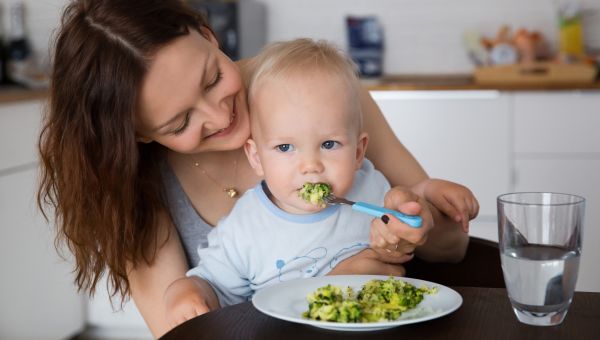The Scoop on Baby Poop: 5 Hues and What They Mean
Here’s what’s common, what’s not—and when to call the doc.

As infants grow, their poop patterns generally slow down. Some babies may poop many times a day, while others poop every few days. The color may range from yellow to brown, with a green one every so often for added color. Here's the scoop on five odd poop colors, plus tips on when to worry – and when not to.
(As always, if your baby or child isn’t feeding well, is having pain, vomiting or looks really sick, call your pediatrician right away.)

Red Poop
Red poop can sometimes indicate blood, so check with your pediatrician to make sure it isn’t anything serious. Sometimes a baby or child can have blood due to a small tear on the inside of the anus, often due to hard stool. Your pediatrician may recommend using prunes, fluids and other dietary changes to soften the stools and see if the blood disappears. If it persists, or your child isn’t acting eating and acting normally, call your pediatrician. Red poop can also result from antibiotics or food or drink your child is taking that may bind with iron, causing the stool to look red. Finally, some foods and drinks, such as beets or red juice, can turn the stool a pretty (or scary) shade of red.

Green Poop
Green poop usually means that the stool moved through your child’s intestines faster than normal. This can be normal (especially in breastfed babies) as long as your baby is gaining weight and developing. You may also see green poop after your baby’s eaten a lot of healthy high-fiber foods, such as broccoli and other green veggies, or if your child’s had a touch of a stomach bug, perhaps even with diarrhea. Sometimes the green color (which can look grass green or even neon green) may be from the dye in a food or beverage.

Yellow Poop
Yellow stool is totally normal in breast-fed babies. It may even look like mustard was squirted in the diaper! For older children, an occasional shade of yellow is fine. Let your pediatrician know if it persists and is associated with tummy pain or loose stools, as this could be a sign of irritation, inflammation or infection in the intestines.

White Poop
One white, chalky or grey stool is okay – it’s often due to something unusual your child ate. If the problem persists, call your pediatrician: It may be a sign of a liver problem or other serious medical condition.

Black Poop
An occasional dark stool, or a black stool that doesn’t have blood, is often simply darker due to your child’s diet, vitamins or even a bit of constipation. True black poop, though, may be a sign of blood higher up in the intestines that looks very dark by the time it comes out. If your child is having more than a few black poops in a row, let your pediatrician know so he or she can test the stool to see if it is truly blood. If it is, your child will need further evaluation.
More On


video

article


video


video


video
